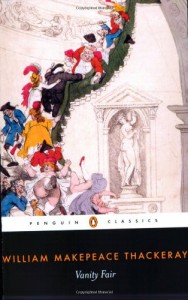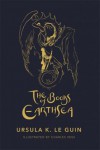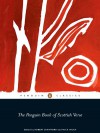Arbie's Unoriginally Titled Book Blog
It's a blog! Mainly of book reviews.
Currently reading
Vanity Fair, Thackeray

Excessively Long Book Syndrome: It takes ages to read and it's more than a 100 years old, therefore it must be great, right? Wrong! So wrong, in this case, that the editor's claim that it "has strong claims to be the greatest novel in the English language" is laughable. It's not even the greatest such novel of its century by a huge stretch - seriously, the best works of Hardy, the Brontes and Austen are all better by a country mile, not least because they don't carry such a ridiculous weight of excess verbiage. A modern editor would need to employ slash and burn to prune this jungle back. Most of the excess is Authorial Voice going off along lengthy tangents before getting back to describing the action. It's extreme even by Victorian standards.
Leaving the sheer length aside, the tone of the book ranges from scathing, sarcastic and satirical to farcical, comical and ironical by way of such stations as bitter, sympathetic and moralistic - with the clear message that Earthly pursuits are all vanity, as encapsulated in the title metaphor, which is repeated ad nauseum through-out. Beyond that there are clear attitudes in regard to the conduct of both women and men that go back-and-fore across the line between cliche-Victorian stereotypes and socially progressive campaigner. The over-all bitter and satirical tone, however, seems to detract from rather than strengthen the power of these themes; Hardy's all-out Tragic approach is much more effective (and he is far more advanced in his views anyway). The same goes for Anne Bronte's The Tenant of Wildfell Hall, where the real terrors of marriage to an addict are laid bare. Austen's wit and humour and wish-fulfillment in Pride and Prejudice is far more entertaining and has a female character everyone can get behind and root for. That's completely absent here; the two contrasted female protagonists are on the one hand, increasingly evil as the story progresses and on the other, dull and lacking all perception of character in others. It's hard to like either of them after about the first third of the book. Instead we have a Stoic hero, who whilst admirable in many ways, is also unexciting for the most part.
By now you may be wondering why I staggered through all the 811p of relatively small print constituting the main text. (The rest is notes and other "apparatus'). Occasionally I wondered whether it was worth it, myself, but in fact, there is a good, if diluted, story here and some snort-worthy humourous cracks and comic scenes as well as drama: there are times when Thackeray focuses on his story-telling and the book becomes involving. Sufficiently so to drag the reader (or at least this one) through to the end simply to find out how the whole mess of family conflicts and marital disasters turns out for everybody (and there are so many characters that even Thackeray can't keep them all straight at times, renaming a serving maid or two here and there and the like.) And there are two great moments, two great sentences, one at the half-way point, at Waterloo, the other right at the end in the closing paragraphs, that show a way forward to a superior kind of writing - but I can't tell you what they are without spoiling everything.
Over-all, yes it was worth the effort, but when it comes to famous gigantic novels, Les Misearbles and War and Peace are vastly more rewarding.











 3
3
 6
6